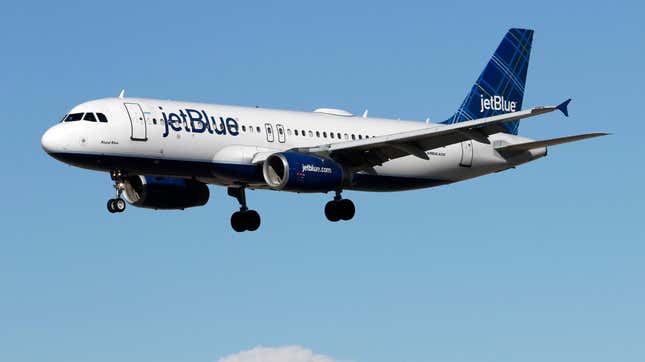
Air travel has become pretty crappy over the last few years, causing travelers to take to social media to vent their concerns directly to airlines. Everything from lost baggage to ticketing issues is shouted about in Tweet form. As usual, scammers have taken notice and have started to “help” travelers with these problems as the Washington Post reports.
Post reporter Mike Hume recently had a flight delay issue on a trip in January with JetBlue and he complained directly to the airline about it on X. His complaint generated an odd responses by accounts who appeared to be associated with JetBlue.
“We apologize for the situation and inconvenience caused. In order for us to be able to check about the situation, we kindly request that you please send us your reachable phone number so agent, JP Can assist.”
Patrick was here to save me from a day of interminable, teeth-grinding delays … or was he?
Shortly after Patrick’s reply came another notification that my previous post was liked and retweeted by an account bearing the name Thomas Clark JetBlue Supervisor. Thomas wrote: “Hi apologies for the inconvenience caused, kindly follow back and share a reachable number via DM for assistance please. Thank you.”
To the less internet-savvy individual, these would appear to be real. But Hume spotted a few things that didn’t appear to make these accounts legit: neither account was verified (the blue checkmark that Musk makes everyone pay for if they want to be verified) and the account associated with “Patrick” — who was described as a manager — had misspelled “manager.” The account also had zero followers and was just created in January. Hume says X’s overhaul of its account verification system hasn’t helped things as accounts like these are all over the site now.
The scam is pretty straightforward and can work if a person doesn’t know what to look for. It goes like this: after complaining directly to an airline about an issue, someone will reach out claiming they work for the airline and will offer help. The sketchiness gets worse as Hume described. “That’s when they ask for personal information like a phone or WhatsApp number via direct message to continue the conversation and resolve the issue. That resolution often entails an offer to rebook your flight reservation and an ask for your credit card number.”
Hume says people should know what to look for so they don’t get scammed. The main thing is to always check for that blue checkmark of verification. Also keep an eye out for responses coming from a single, personal account instead of the airline’s main account. You can also not reply to them and reach out to the FTC and the airline so they can take action against the scammers.
As for airlines like JetBlue, a rep for the airline told Hume that they’ve been working with “…a cyber fraud prevention business and its own legal counsel” to fight these scammers and fake profiles.

